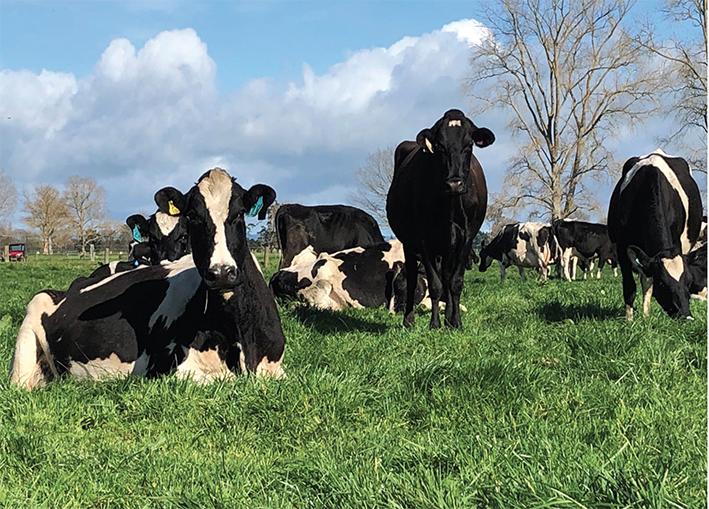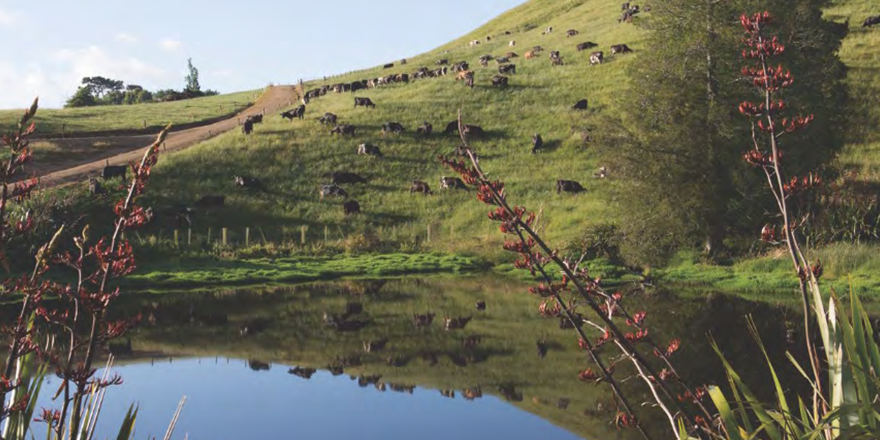A paradigm shift in the way we farm is occurring, one that emphasises the importance of producing more effectively, efficiently and responsibly, with a particular focus on protecting the environment. New Zealand farmers are confronting these changes now. Our geographic isolation no longer shelters us from the global and instant communication and information networks are now freely available. I believe that our opportunity is to leverage this increased public and consumer awareness of the environment and the growing desire of consumers to understand how their food is produced and where it comes from.
My aim in undertaking this study was to provide a pathway allowing farmers to better connect with consumers. If we are to set NZ product aside from our competitors in-market, it was my view that we needed not only a good story that engaged the consumer, but also a way of ensuring that the consumer can understand the way in which we treat both the animals and the land on which we farm them.
From this study, I believe we have a fantastic opportunity to future proof our businesses across the supply chain and to create a new level of connection with the consumer that will lead to gains in the value of the food we produce over time. As farmers, I believe that we need to step up now and own this as an opportunity. This has to be a ‘bottom, up’ process where we recognise the value that this will create for us as farmers, as food producers and as an industry over time. We must work together to develop a meaningful connection with the consumers who recognise our food for what it is; sustainably produced to the highest standards for the environment, animals and consumers.
The study commenced with extensive internet research and discussions with key NZ industry figures to understand the current status quo and current goals and initiatives. Initial thoughts were to implement the ‘Environmental Sustainability’ (such as Origin Green) approach as a means of connecting with the consumer, however this morphed into a wider discussion about what consumers desire from producers as I engaged with manufacturers, importers and distributors around the world. I began to understand that consumer perception is influenced by a number of factors including the manner in which product is presented and the way in which its claims are demonstrated.
Consumers are rightly demanding more knowledge and accountability from their food producers. It is almost mandatory for Country of Origin labelling. Why? Because we as consumers identify that the standards that are met and controls that are in place differ from country to country, and it gives us an idea of whether the food that we are eating is safe. As a small exporting nation that is reliant on the export of agricultural products, we cannot allow ourselves to have any doubt cast on the quality and safety of our produce. As we know, with the power of social media now, the implications of an error in judgement by a single farmer, can lead to challenges in ensuring our produce is accepted by consumers in global markets.
Certification of the farming system from both an environmental and animal welfare perspective gives us a starting point in terms of having a discussion with the consumer. As part of an overall strategy, it allows farmers the opportunity to provide visibility and assurance to our consumers of the production process their food has gone through and the impact of that process on the environment. It also connects consumers with their food ‘story’, something that has been lost as society has become more urbanised. For farmers, this creates a meaningful way in which we can differentiate our product from other producers. It also gives an opportunity to connect with the urban population of NZ, to show our commitment to maintaining our social licence to farm by working to improve the environment.
Keywords for Search: David Kidd




